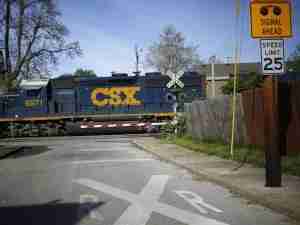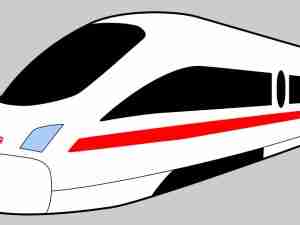Bad Parts in Bullet Trains Reveal Widening Kobe Steel Crisis
By: | Oct 12 2017 at 12:49 AM | Intermodal
Kobe Steel Ltd.’s fake data scandal penetrated deeper into the most hallowed corners of Japanese industry as iconic bullet trains were found with sub-standard parts supplied by the steelmaker.
While they don’t pose any safety risks, aluminum components connecting wheels to train cars failed Japanese industry standards, according to Central Japan Railway Co, which operates the high-speed trains between Tokyo and Osaka. West Japan Railway Co, which runs services from Osaka to Fukuoka, also found sub-standard parts made by Kobe Steel.
The latest scandal to hit Japan’s manufacturing industry erupted on Sunday after the country’s third-largest steel producer admitted it faked data about the strength and durability of some aluminum and copper. As scores of clients from Toyota Motor Corp. to General Motors Co. scrambled to determine if they used the suspect materials and whether safety was compromised in their cars, trains and planes, the company said two more products were affected and further cases could come to light.
“I deeply apologize for causing concern to many people, including all users and consumers,” Kobe Steel Chief Executive Officer Hiroya Kawasaki said at a meeting with a senior official from the Ministry of Economy, Trade and Industry on Thursday. He said trust in the company has fallen to “zero” and he will work to restore its reputation. “Safety is the top priority.”
Shares in the company rebounded 1 percent Thursday, after plunging 36 percent over the previous two days. About $1.6 billion of the company’s market value has been wiped out since the revelations were made.
Figures were systematically fabricated at all four of Kobe Steel’s local aluminum plants, with the practice dating back as long as 10 years for some products, the company said Sunday. Data was also faked for iron ore powder and target materials that are used in DVDs and LCD screens, it said three days later.
In Central Japan Railway’s bullet trains, 310 of the tested parts were found to be sub-standard and will be replaced at the next regular inspection, spokesman Haruhiko Tomikubo said. They were produced by Kobe Steel over the past five years, he said.
Investigations have been completed on about 100 of 200 companies to which Kobe Steel supplied the affected products, Kawasaki said. The company plans to release the findings of safety checks for the products in about two weeks, and the causes of the issue and planned countermeasures within a month.
While there have not been any reports that Kobe Steel products posed safety risks, the company is likely to face lawsuits from investors, customers, consumers and regulators in Japan and U.S., experts say. Deputy Chief Cabinet Secretary Kotaro Nogami on Wednesday said the faked data undermined the basis of fair trade, calling it “inappropriate.”
If lenders were to take over Kobe Steel, a break-up of the company along business lines could be beneficial for shareholders and rivals, according to Thanh Ha Pham, an analyst at Jefferies Japan Ltd., who has a “Buy” rating for the company. Kobe’s steel business would fetch roughly 200 billion yen ($1.78 billion), he said.
Japan’s steel industry is dominated by JFE Holdings Inc. and Nippon Steel & Sumitomo Metal Corp., which accounted for about 70 percent of the country’s production in the year ended March.
“I talked with management of JFE and I think they are very happy to buy Kobe Steel’s steel businesses,” Pham said Thursday on Bloomberg TV. “That would be a very good scenario, to have further restructuring in the steel industry in Japan.”
JFE said it isn’t actively considering purchasing Kobe Steel’s steel business.







